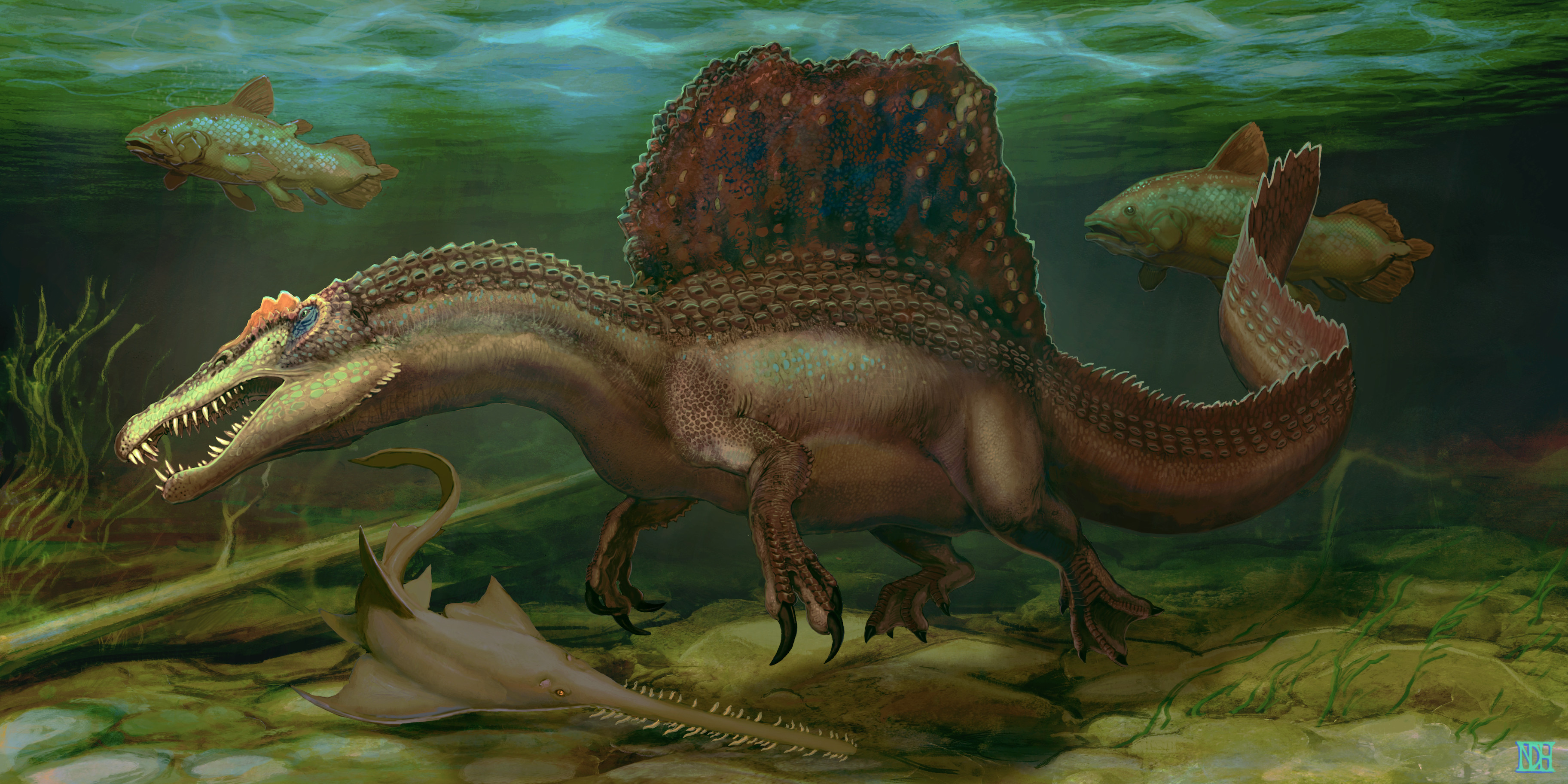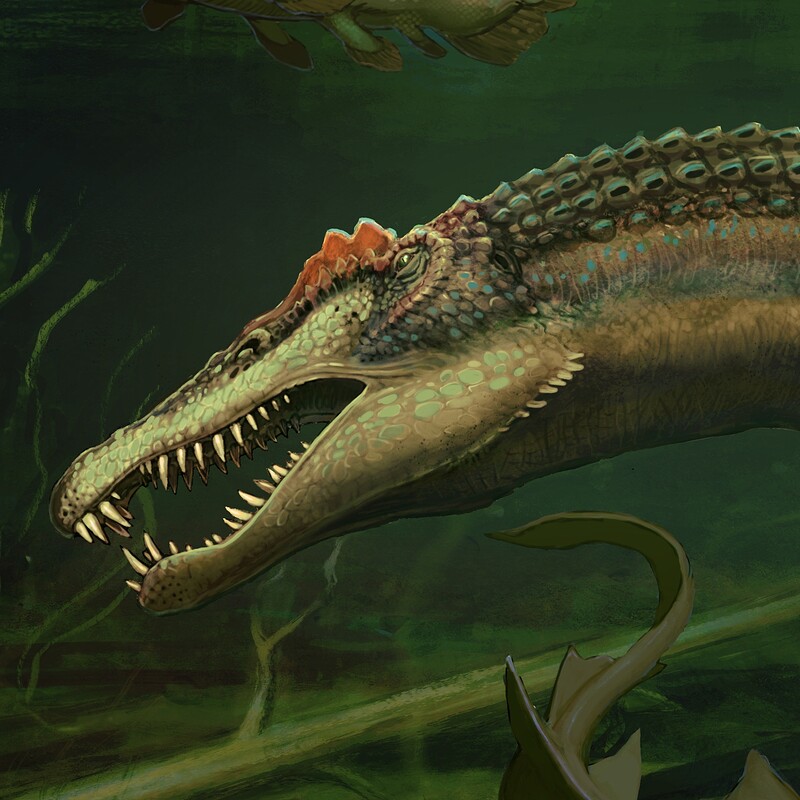Spinosaurus
The Kem Kem Group in eastern Morocco, 100 million years ago. Depicted are Mawsonia gigas, Onchopristis numida and Spinosaurus aegyptiacus. Spinosaurus has been getting a lot of publicity lately because of recent discoveries and research publications. Most of which revealed that it featured traits that strongly suggest it was at least semi-aquatic but certainly heavily specialized for hunting fish. I’m fascinated by spinosaurus mostly because of the story our growing understanding. Partial remains were first discovered by a German paleontologist early in the 20th century and then completely destroyed when the allies bombed Munich during WWII. What we know about it has been compiled from a few fragmentary specimens, some of which link it to better known relatives that help us fill in the gaps. But with each discovery, it’s gotten progressively stranger. Our image of it started as a generic large theropod with a 6-foot sale, to something with a skull that was a bit more crocodilian to this. A sail-backed animal with long and low body proportions, a long finned tail, dense bones and flat webbed feet at the ends of stubby hind legs.



